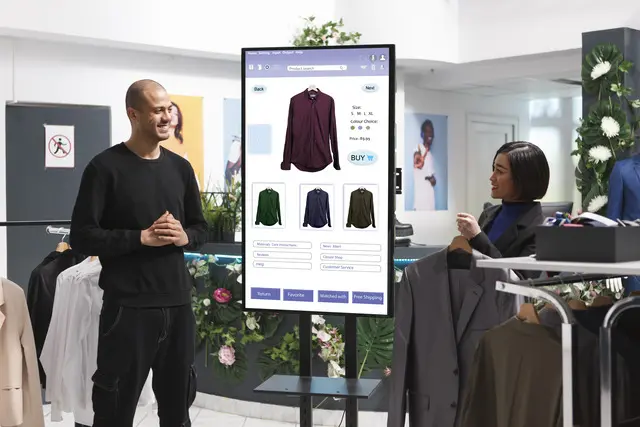Revolutionizing Retail Operations with Automated Employee Scheduling and Time Tracking
In the fast-paced and competitive retail industry, streamlining employee scheduling and time tracking is paramount for efficiency and accuracy. Traditional manual processes are prone to errors, consume valuable time, and hinder operational effectiveness.
Harnessing the Power of Technology
Python, AI, and cloud-based solutions offer a game-changing approach to employee scheduling and time tracking automation. These technologies empower retailers to:
- Automate shift creation based on staffing requirements, employee availability, and labor regulations
- Efficiently notify employees of their schedules and manage shift swaps or time-off requests
- Accurately track employee hours worked for payroll and labor cost optimization
- Monitor productivity metrics to optimize staffing levels and improve operational efficiency
By embracing these innovative solutions, retailers can unlock a myriad of benefits, including:
- Reduced administrative burden and improved accuracy
- Enhanced employee satisfaction through transparent and flexible scheduling
- Optimized labor costs and increased productivity
- Real-time insights for informed decision-making
Embrace the future of employee scheduling and time tracking automation and empower your retail operations with the efficiency, accuracy, and insights needed to thrive in today’s competitive landscape.

Unlocking Automation Potential with Python, AI, and Cloud for Employee Scheduling and Time Tracking
Unleashing the Power of Python for Unattended and Attended Bots
Python’s versatility shines in developing both unattended and attended bots for employee scheduling and time tracking automation. Unattended bots can autonomously execute repetitive tasks 24/7, such as:
- Automatically creating schedules based on pre-defined rules and constraints
- Monitoring employee availability and notifying them of their shifts
- Tracking employee hours worked and generating payroll reports
Attended bots, on the other hand, assist human employees in completing tasks more efficiently. They can:
- Guide employees through the scheduling process, ensuring accuracy and compliance
- Handle employee requests for shift swaps or time-off in real-time
- Provide instant access to employee schedules and time tracking data
Cloud Platforms: The Orchestration Powerhouse
Cloud platforms surpass traditional RPA/workflow tools in terms of features and capabilities. They offer:
- Scalability: Handle large volumes of data and complex automation processes
- Flexibility: Easily adapt to changing business requirements
- Integration: Seamlessly connect with other business systems, such as HRMS and payroll
- Security: Robust security measures to protect sensitive employee data
AI: Enhancing Accuracy and Handling Edge Cases
AI techniques empower automation solutions to handle complex tasks and improve accuracy. For instance:
- Image recognition: Automatically extract data from employee timecards or other documents
- Natural language processing (NLP): Understand and respond to employee requests in natural language
- Generative AI: Generate optimized schedules based on historical data and predictive analytics
By leveraging the combined power of Python, AI, and cloud platforms, retailers can achieve unparalleled efficiency and accuracy in their employee scheduling and time tracking processes, unlocking significant operational benefits.

Crafting the Automated Solution: A Step-by-Step Guide
Sub-processes in Employee Scheduling and Time Tracking Automation
1. Schedule Creation:
- Python: Develop algorithms to generate schedules based on staffing requirements, employee availability, and labor regulations
- Cloud: Utilize cloud computing power to handle large volumes of data and complex calculations
2. Employee Notification:
- Python: Create automated emails or text messages to notify employees of their schedules
- Cloud: Leverage cloud-based communication services for reliable and scalable delivery
3. Shift Management:
- Python: Implement a system to manage shift swaps and time-off requests
- Cloud: Provide a central repository for employees to access and update their schedules
4. Time Tracking:
- Python: Develop a time tracking module to record employee hours worked
- Cloud: Store and process time tracking data securely in the cloud
5. Payroll and Labor Cost Management:
- Python: Generate payroll reports and analyze labor costs
- Cloud: Integrate with payroll systems and provide real-time insights into labor expenses
Data Security and Compliance in Retail
Data security and compliance are paramount in the retail industry. Python and cloud platforms offer robust security measures to protect sensitive employee data, such as:
- Encryption and access controls
- Compliance with industry regulations (e.g., PCI DSS)
- Regular security audits and updates
Python vs. No-Code RPA/Workflow Tools
Advantages of Python:
- Flexibility: Python allows for customization and tailored solutions to meet specific business needs
- Scalability: Python can handle complex automation processes and large datasets
- Integration: Python seamlessly integrates with other systems and technologies
Limitations of No-Code RPA/Workflow Tools:
- Limited customization: Pre-built tools may not fully address unique business requirements
- Performance bottlenecks: No-code tools can be slower and less efficient than custom-built Python solutions
- Vendor lock-in: No-code tools often restrict users to their own platforms
Algorythum’s Python-First Approach
Algorythum recognizes the limitations of off-the-shelf automation platforms and takes a different approach. Our Python-first approach empowers businesses with:
- Tailor-made solutions: We develop custom automation solutions that precisely align with your unique business processes
- Unparalleled performance: Python’s efficiency ensures fast and reliable automation
- Future-proof investments: Our Python-based solutions are scalable and adaptable to evolving business needs

The Future of Employee Scheduling and Time Tracking Automation
The future of employee scheduling and time tracking automation is bright, with emerging technologies offering exciting possibilities to enhance the proposed solution even further.
- Artificial Intelligence (AI): AI-powered automation can optimize scheduling by considering employee preferences, skills, and historical data. It can also detect and resolve scheduling conflicts in real-time.
- Machine Learning (ML): ML algorithms can analyze employee performance data to identify patterns and trends. This information can be used to improve scheduling decisions and optimize labor costs.
- Blockchain: Blockchain technology can provide a secure and transparent way to store and manage employee schedules and time tracking data. This can enhance data integrity and prevent unauthorized access.
By embracing these future technologies, businesses can unlock even greater efficiency, accuracy, and cost savings in their employee scheduling and time tracking processes.
Subscribe to Us for Industry-Specific Automation Insights
Stay ahead of the automation curve by subscribing to our newsletter. We provide valuable insights, case studies, and best practices on the latest automation trends in the retail industry.
Contact Us for a Free Feasibility and Cost-Estimate
Are you ready to transform your employee scheduling and time tracking processes with custom automation? Contact our team today for a free feasibility assessment and cost-estimate tailored to your specific requirements. Let us help you unlock the full potential of Employee Scheduling and Time Tracking Automation and drive your retail operations to new heights of efficiency and productivity.

Algorythum – Your Partner in Automations and Beyond
At Algorythum, we specialize in crafting custom RPA solutions with Python, specifically tailored to your industry. We break free from the limitations of off-the-shelf tools, offering:
- A team of Automation & DevSecOps Experts: Deeply experienced in building scalable and efficient automation solutions for various businesses in all industries.
- Reduced Automation Maintenance Costs: Our code is clear, maintainable, and minimizes future upkeep expenses (up to 90% reduction compared to platforms).
- Future-Proof Solutions: You own the code, ensuring flexibility and adaptability as your processes and regulations evolve.









